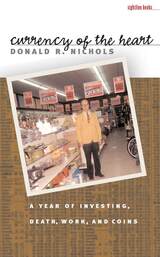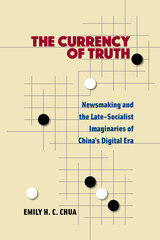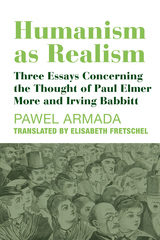3 books about Currency

China Upside Down
Currency, Society, and Ideologies, 1808–1856
Man-houng Lin
Harvard University Press, 2006
Many scholars have noted the role of China's demand for silver in the emergence of the modern world. This book discusses the interaction of this demand and the early-nineteenth-century Latin American independence movements, changes in the world economy, the resulting disruptions in the Qing dynasty, and the transformation from the High Qing to modern China. Man-houng Lin shows how the disruption in the world's silver supply caused by the turmoil in Latin America and subsequent changes in global markets led to the massive outflow of silver from China and the crisis of the Qing empire. During the first stage of this dynastic crisis, traditional ideas favoring plural centers of power became more popular than they ever had been. As the crisis developed, however, statist ideas came to the fore. Even though the Qing survived with the resumption of the influx of Latin American silver, its status relative to Japan in the East Asian order slipped. The statist inclination, although moderated to a degree in the modern period, is still ascendant in China today. These changes—Qing China's near-collapse, the beginning of its eclipse by Japan in the East Asian order, and shifting notions of the proper relationship between state and market and between state and society—led to "China upside down."
[more]

Currency of the Heart
A Year of Investing, Death, Work, and Coins
Donald Nichols
University of Iowa Press, 2002
In 1998, Don Nichols returned regularly to Iowa from his life and job in Washington, D.C., to be with his dying father and to oversee his parents’ investments. A veteran investor and investment author, Nichols found that managing the portfolio entrusted to him brought a larger understanding of mortality, family, love, work, and the choices he had made as “an agri-kid who took the road out of town and kept going.” In this insightful and money-wise book that grew out of that experience, he merges the emotions of a dutiful son with the actions of a knowledgeable investor.
Nichols uses money in myriad forms—a grandfather‘s silver dollar, stocks and bonds, salaries, pallets of coins at the U.S. Mint, on-the-job dealings with coin collectors—as touchstones for reflections on relationships, motives, and a career "like one of those moving walkways in airports." His father's health is measured, tested, and evaluated in part by the health of his finances; at the same time, the turmoil and mystery surrounding both money and relationships are reflected in this memorable story.
Nichols uses money in myriad forms—a grandfather‘s silver dollar, stocks and bonds, salaries, pallets of coins at the U.S. Mint, on-the-job dealings with coin collectors—as touchstones for reflections on relationships, motives, and a career "like one of those moving walkways in airports." His father's health is measured, tested, and evaluated in part by the health of his finances; at the same time, the turmoil and mystery surrounding both money and relationships are reflected in this memorable story.
Wry, unsentimental, and financially savvy, Currency of the Heart is about rediscovering family, managing a portfolio, honoring promises, grieving, and healing; it is about a father and a son who once “fought like medieval villagers in a Thirty Years‘ War” and the deepening bond between a middle-age son and his aging mother. It is a multilayered story for everyone who will manage, financially and emotionally, a parent's death.
[more]

The Currency of Truth
Newsmaking and the Late-Socialist Imaginaries of China's Digital Era
Emily H. C. Chua
University of Michigan Press, 2023
China’s news sector is a place where newsmakers, advertising executives, company bosses, and Party officials engage one another in contingent and evolving arrangements that run from cooperation and collaboration to manipulation and betrayal. Drawing on long-term ethnographic fieldwork with journalists, editors, and executives at a newspaper in Guangzhou, The Currency of Truth brings its readers into the lives of the people who write, publish, and profit from news in this milieu. The book shows that far from working as mere cogs in a Party propaganda machine, these individuals are immersed in fluidly shifting networks of formal and informal relationships, which they carefully navigate to pursue diverse goals.
In The Currency of Truth, Emily H. C. Chua argues that news in China works less as a medium of mass communication than as a kind of currency as industry players make and use news articles to create agreements, build connections, and protect and advance their positions against one another. Looking at the ethical and professional principles that well-intentioned and civically minded journalists strive to uphold, and the challenges and doubts that they grapple with in the process, Chua brings her findings into conversation around “post-truth” news and the “crisis” of professional journalism in the West. The book encourages readers to rethink contemporary news, arguing that rather than setting out from the assumption that news works either to inform or deceive its publics, we should explore the “post-public” social and political imaginaries emerging among today’s newsmakers and remaking the terms of their practice.
In The Currency of Truth, Emily H. C. Chua argues that news in China works less as a medium of mass communication than as a kind of currency as industry players make and use news articles to create agreements, build connections, and protect and advance their positions against one another. Looking at the ethical and professional principles that well-intentioned and civically minded journalists strive to uphold, and the challenges and doubts that they grapple with in the process, Chua brings her findings into conversation around “post-truth” news and the “crisis” of professional journalism in the West. The book encourages readers to rethink contemporary news, arguing that rather than setting out from the assumption that news works either to inform or deceive its publics, we should explore the “post-public” social and political imaginaries emerging among today’s newsmakers and remaking the terms of their practice.
[more]
READERS
Browse our collection.
PUBLISHERS
See BiblioVault's publisher services.
STUDENT SERVICES
Files for college accessibility offices.
UChicago Accessibility Resources
home | accessibility | search | about | contact us
BiblioVault ® 2001 - 2024
The University of Chicago Press









